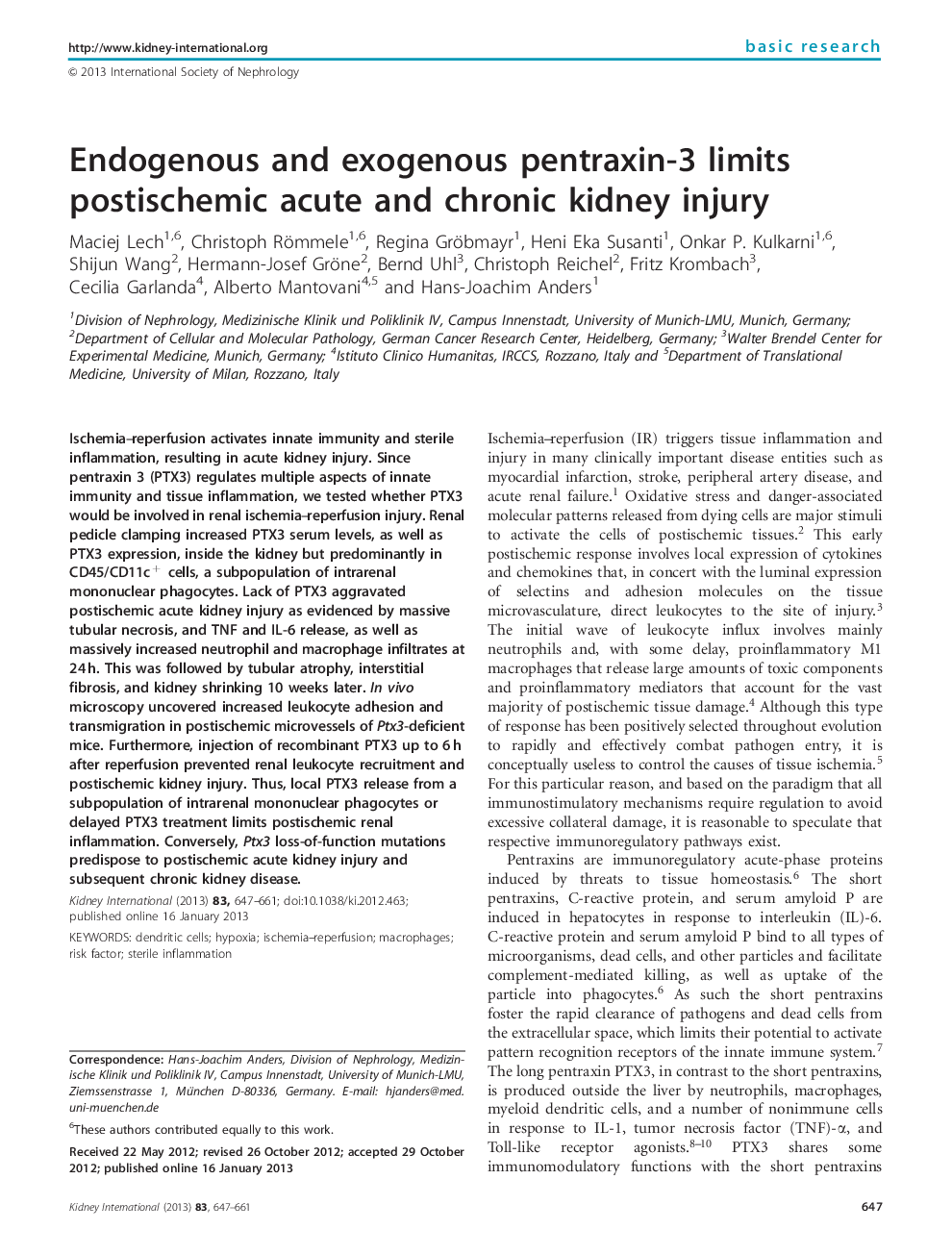| Article ID | Journal | Published Year | Pages | File Type |
|---|---|---|---|---|
| 6162168 | Kidney International | 2013 | 15 Pages |
Abstract
Ischemia-reperfusion activates innate immunity and sterile inflammation, resulting in acute kidney injury. Since pentraxin 3 (PTX3) regulates multiple aspects of innate immunity and tissue inflammation, we tested whether PTX3 would be involved in renal ischemia-reperfusion injury. Renal pedicle clamping increased PTX3 serum levels, as well as PTX3 expression, inside the kidney but predominantly in CD45/CD11c+ cells, a subpopulation of intrarenal mononuclear phagocytes. Lack of PTX3 aggravated postischemic acute kidney injury as evidenced by massive tubular necrosis, and TNF and IL-6 release, as well as massively increased neutrophil and macrophage infiltrates at 24Â h. This was followed by tubular atrophy, interstitial fibrosis, and kidney shrinking 10 weeks later. In vivo microscopy uncovered increased leukocyte adhesion and transmigration in postischemic microvessels of Ptx3-deficient mice. Furthermore, injection of recombinant PTX3 up to 6Â h after reperfusion prevented renal leukocyte recruitment and postischemic kidney injury. Thus, local PTX3 release from a subpopulation of intrarenal mononuclear phagocytes or delayed PTX3 treatment limits postischemic renal inflammation. Conversely, Ptx3 loss-of-function mutations predispose to postischemic acute kidney injury and subsequent chronic kidney disease.
Related Topics
Health Sciences
Medicine and Dentistry
Nephrology
Authors
Maciej Lech, Christoph Römmele, Regina Gröbmayr, Heni Eka Susanti, Onkar P. Kulkarni, Shijun Wang, Hermann-Josef Gröne, Bernd Uhl, Christoph Reichel, Fritz Krombach, Cecilia Garlanda, Alberto Mantovani, Hans-Joachim Anders,
